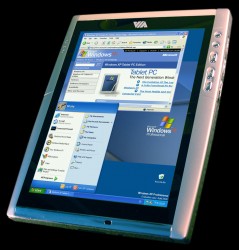 Sales of desktop PCs and laptops are falling. It’s impossible to read any technical media without hearing about the “death of the PC.” And both Apple and Microsoft are soon to release operating systems that seek to merge the features of the computer operating system with those available on tablet devices.
Sales of desktop PCs and laptops are falling. It’s impossible to read any technical media without hearing about the “death of the PC.” And both Apple and Microsoft are soon to release operating systems that seek to merge the features of the computer operating system with those available on tablet devices.
All this evidence mounts up to suggest that the Steve Jobs-coined “post PC era” is upon us. Well, I’m going to stick my neck out on this: I don’t buy it.
Don’t get me wrong – I possess and adore an iPhone 4s, and if I need to quickly look something up online in the evening, I am as likely to reach for that as I am my laptop. I also think that Apple have done enough with the incredible specification of the latest iPad that I will finally give in to temptation and buy one, even though I don’t NEED one.
The ability to perform tasks via phones and tablets that would previously have required a “proper” computer is undeniable. Often these tasks can even be performed more effectively and flexibly on these devices. This, logically, accounts for the falling desktop and laptop sales figures…but “post-PC?” Don’t be daft.
Here’s why:
1. Business
Walk into any office and what will you see? Everyone working with email. Staff using office applications, bespoke databases and commonly used apps like Photoshop and InDesign. Move further into the business, and PCs and traditional servers are powering everything from car production lines to restaurant EPOS systems. Is this going to change overnight because the new iPad has a retina display and a 4G mobile connection?
2. Gaming
Phones and tablets now have power and graphical grunt to rival dedicated consoles. However, can they play Skyrim, World of Warcraft and Deus Ex? Do they have the ability to utilize the classic keys / mouse combo necessary to play the leading first person shooters? Do they even have a D-pad and A button to rival the original monochrome Gameboy. No, no and no.
3. Ergonomics
Imagine the legal fallout if offices switched from desktop PCs and made staff hunch over tablets. There’s a reason office workers use ergonomic office chairs and monitors located on desks – it stops them damaging their spines.
4. Practicality
What, really, is an iPad with an attached keyboard? It’s basically a laptop. What, really is an iPad with a BlueTooth keyboard? It’s basically a desktop with a screen that doesn’t stand up on its own. Without any ports.
Now, I am aware that my stance may seem non-progressive. The kind of thing an old-school techie may have said about the iPad when it was first released. This is not the case. If I didn’t love technology, I wouldn’t have got into the industry. Furthermore, there are wonderful ways to use the iPad right across the consumer and business sectors. Creating music and graphics in an iPad is a pleasure impossible to emulate without the tactile experience of a tablet.
However, why should everyone do everything on a touch-based device simply because it is possible? I have no doubt that over the next couple of years I am going to witness plenty of clients make poor decisions by trying to squeeze computer shaped square pegs into iPad shaped round holes – and all because they read “post PC era” somewhere and took it too seriously. We all need to calm down – the computer’s not going anywhere.

Leave a Reply
You must be logged in to post a comment.